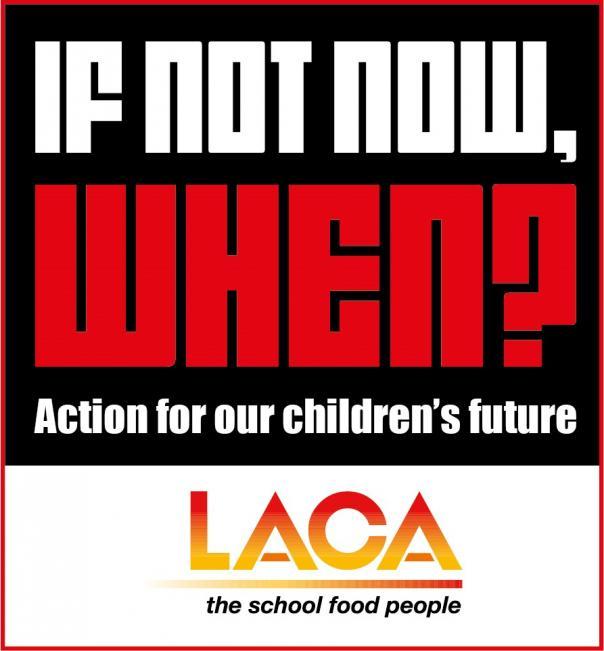LACA publishes collective mission on school meals following round table discussion

LACA announced the collective goal is that all school-aged children and young people should, every school day, have access to freshly prepared, great tasting hot meals. These should be made from seasonal and sustainable produce and products, which ensure that all meals are nutritious and meet the mandatory School Food Standards.
The drive behind this action is reflected in the theme LACA has chosen for its Main Event this year ‘If not now, when?’ – which reflects the sense of crisis in the school meals service.
Children and young people in England are significantly under-supported when compared to their peers in Scotland, Wales and Northern Ireland.
England’s eligibility threshold for benefit-based Free School Meals is 89% lower than that of Northern Ireland. Funding for free school meals in England is markedly lower than other UK Nations funding levels per meal - 20% less than Wales and 37% less than Scotland.
To Government, attendees at the round table collectively say that appropriate levels of funding for universal infant free school meals and benefit-based free school meals (adjusted annually and accounting for Government increases to the National Living Wage and food inflation) must be made available to schools and school caterers through simple, identifiable and accountable funding streams that reach the school kitchen and the children and young people.
Brad Pearce, chair of LACA, commented: “Our mission sets out the collective vision across leading school food providers, with the ambition of ensuring that children and young people have access to hot, healthy and freshly prepared school meals.
“We recognise that there are children who are falling through the cracks because they are not eligible for free school meals because their households earn more than £7,400 a year – a threshold that is far too low. This is why we are calling for the Government to extend free school meals to all children whose households are on universal credit.
“In addition, our mission is reflective of the ongoing challenges that the school food sector is facing as a result of the cost-of-living crisis and ongoing disruptions to our supply chains. That is why, as outlined, we are collectively calling for the Government to reform school meal funding to ensure that no child is left behind, and so that the school food sector receives the funding that is critical to upgrading our kitchen infrastructure, and accounting for increasing labour and food costs.”
To protect the health and well-being of our children and young people, the Government needs to:
- Reform school meal funding to secure simple, identifiable and accountable streams that reach the school kitchen and are used to feed the child and young person.
- Increase funding for UIFSM and Benefit-based FSM to address current inflationary and labour cost pressures and commit to ongoing annual increases adjusted for inflation
- Extend eligibility to Benefit-based FSM to all children and young people whose families and carers are in receipt of universal credit, recognising that schools will require support to upgrade kitchen infrastructure for ambient, cold and frozen storage, preparation, production and resource
- Make school meals a priority by committing to comprehensively reforming the school food system, which supports schools and caterers to adopt a whole school approach to school food including delivering the very best possible school meals to all children and young people
Pearce added: “Our ultimate mission is that all children and young people receive a free, freshly prepared, great tasting hot school meal made from seasonal and sustainable produce and products, which creates both consistency across all communities and community wealth.
“This will benefit their health and ensure that children and young people living in poverty are not missing out, and also support local communities through increased employment opportunities, increased environmental sustainability and support British farmers and growers through local and regional procurement to create a sustainable school-food eco system.”
This collective mission was signed by the Public Sector Catering Alliance, Bidfood, Brakes, CaterED, Caterlink, Chartwells, ISS, Juniper Ventures, the National Farmers Union, SchoolGrid, Sodexo, the Soil Association and Washingborough Academy.
